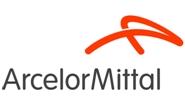Market Segment

December 8, 2015
ArcelorMittal Patent Declared Invalid in Infringement Suit with AK Steel
Written by Sandy Williams
A Delaware judge invalidated a patent by ArcelorMittal in a ruling favoring AK Steel in a dispute that has been ongoing for almost six years.
The original suit, filed in January 2010 by ArcelorMittal, claimed that AK Steel’s lightweight, high-strength steel Ultralume, used in automotive applications, violated ArcelorMittal’s 2001 patent (patent 6,296,805—referred to as ‘805) for its Usibor steel. In 2011, a jury ruled that the ArcelorMittal patent on the aluminum coated boron steel was invalid. A judge in August 2011 refused an appeal by ArcelorMittal, saying that the process of coating steel with aluminum and heat treating was publically disclosed by a steel expert during a trade conference before the ArcelorMittal patent date.
The case was brought before a Federal court in November 2012 claiming that jurors were prevented by flawed district court claims construction from considering evidence about the commercial success of Usibor that would have convinced the jury of Usibor’s uniqueness. At issue as well was the interpretation by the court of “a very high mechanical resistance” as “a tensile strength greater than 1500 MPa.” The case was remanded for a new trial.
During the appeal process ArcelorMittal obtained a new patent RE44,153E (referred to as RE153 patent) for Usibor that “corrected” the “high mechanical resistance” to a tensile strength greater than 1000 MPa.
In 2013, U.S. District Judge Sue L. Robinson granted a motion of summary judgment from AK Steel arguing that the new patent had been improperly broadened and was therefore invalid. In an opinion dated, October 25, 2013, Judge Robinson wrote:
“There can be no doubt that ArcelorMittal pursued its reissue patent as an intentional strategy to avoid the consequences of this court’s narrow claim construction, with the ultimate goal of capturing more acts of infringement under the broadening scope of new dependent claim 23 of the RE153 patent. Although such a strategy would have been perfectly legitimate if pursued within two years from the grant of the ‘805 patent, [6] the court concludes that ArcelorMittal’s post-trial strategy offends the fundamental purpose of§ 251, that is, repose.
In June 2015 appeal, the Federal Circuit affirmed that the patent was improperly broadened and invalid but agreed that the district court erred in invalidating claims 24 and 25 (about the steel coating, mechanical resistance and tensile strength). The district court decision was remanded.
Since that time multiple motions were filed by both ArcelorMittal and AK Steel. Last week’s decision was based on filings in Civ. No. 10-050 which include a motion by AK Steel for summary judgment and a motion by ArcelorMittal to dismiss. ArcelorMittal also filed a “motion to amend” in Civ. No. 13-685, seeking to assert another patent (RE 44, 940) against AK Steel (a continuation of the RE 153 patent) and promised not to sue on RE 153 if the request to amend is approved.
In her conclusion, Judge Robinson granted the motion for summary judgment of no infringement and the invalidity of patent RE 153 patent, mooting ArcelorMittal’s covenant not to sue.
Judge Robinson added that if ArcelorMittal had continued its litigation of the original patent they “might now have a verdict of infringement rather than the instant procedural quagmire, a classic case of being hoisted by one’s own petard.”
The same holds true, said Robinson, of the promise not to sue, “Of course, if plaintiffs had simply filed the covenant instead of making it conditional, they could have avoided the entry of judgment—once again, hoisted by their own petard,”
For those unfamiliar with the final reference in her statement, hoisted by your own petard is defined as “to suffer harm from a plan which you had intended to harm someone else.”
ArcelorMittal was granted leave to file a first amended complaint.







